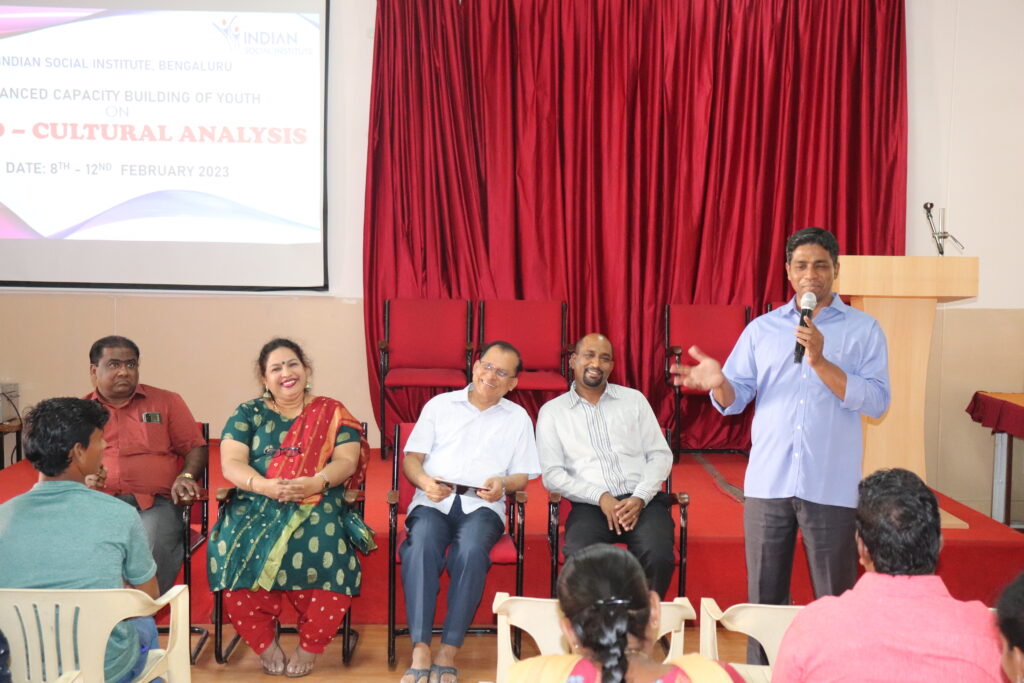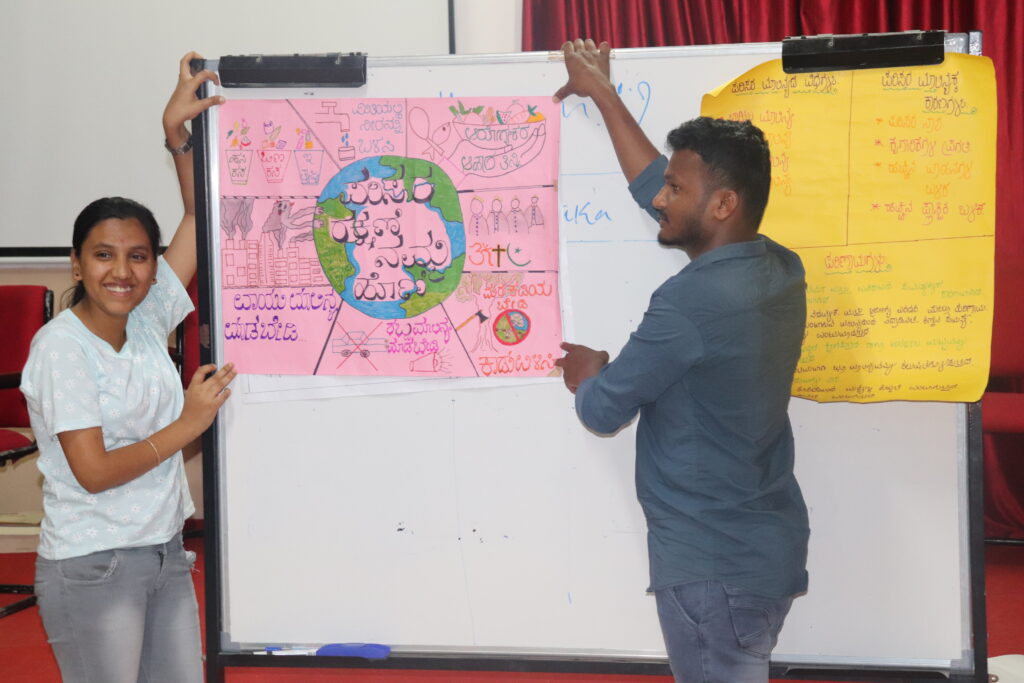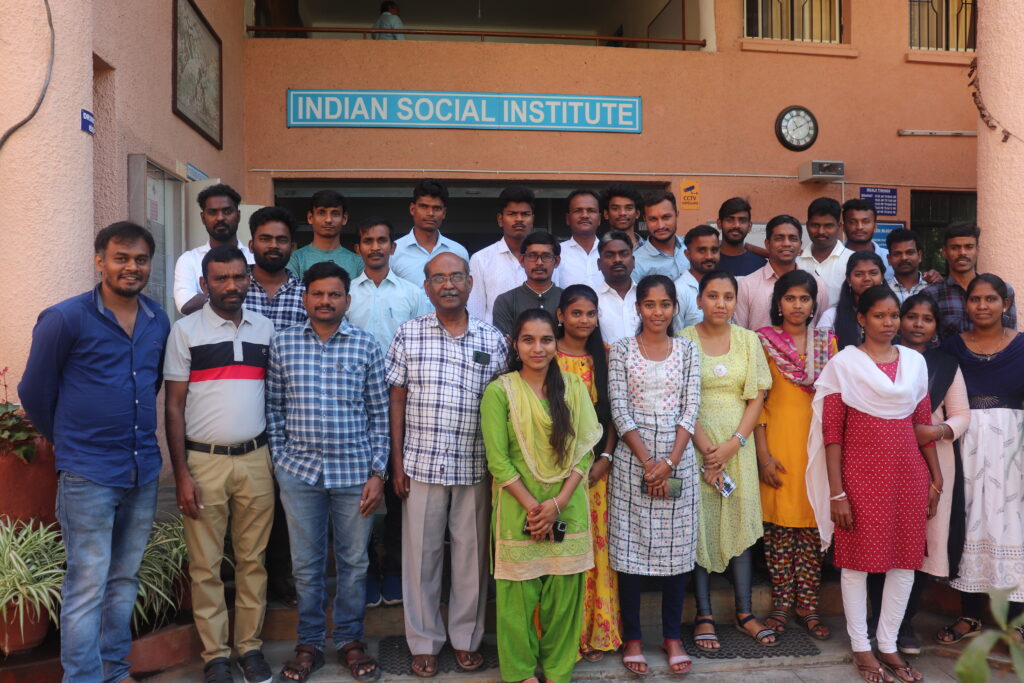


“Through Socio-cultural Analysis I have a better understanding of my village. The Dalits, Adivasis and other Marginalised communities are victims of the iron grip of the hierarchical structure of caste and live in sub-human conditions in socio, economic, political and cultural spheres denied of rights and dignity. I want to contribute to breaking these barriers in my community and work towards changing the mindset”, says Ms. Karoline, AHAL NGO, Tamil Nadu.
A 5-day capacity building of youth titled ‘Socio-cultural analysis’ was held at the Indian Social Institute, Bengaluru from 8 to 12 February 2023. Fr Joye James, the Vice-President of the Indian Social Institute explaining the dynamics of the social analysis said, “Society is constantly changing. We need to avoid dogmatism and rigidity and take a position to enter the realm of the ‘controversial’. Hence critical thinking and understanding society from different perspectives will give rise to knowledge development. Therefore, one should not have a neutral approach to socio-cultural analysis.”
About 30 select youth participants from Andhra Pradesh and Telangana, Karnataka, Tamil Nadu and Pondicherry said, “The advanced module training sessions are changing them from being learners to performers. One of the participants pointed out the first module training on ‘Leadership and Social animation skills’ enabled the person to emerge as a responsible leader of his community and he took initiatives to address social issues through participation in grama sabhas, youth meetings, and also used social media skills to spread knowledge in the community. After attending Socio-cultural Analysis, Mr. Elangoven from Bless NGO said, “I was enlightened by Dr. Sylvia Karpagam on environment and sociology of food, choice of clothes and partner. I learnt about the importance of nutrition. I will use these learnings in my work and teach others about the importance of nutrition in building a healthy community.”
Eminent social activists shared their knowledge on the understanding of social structures, the influence of religion and politics affecting one’s life, the environment, the effects of climate change, the sociology of food, choices of clothes, religion, partners and understanding of inclusion and exclusion in society.
The methodology included village mapping, poster making, documentary screenings, singing social awareness songs, group discussion, sharing, and presentations in common which helped youth to share their views and learn from each other. It also connected them with social activists of other states in building solidarity and exchanging knowledge across state lines.
The youth took part in Karnataka state-level public conference on ‘Sexual violence against women’ held at St. Joseph’s University, Bengaluru and interacted with Senior Advocate of Supreme Court, Ms. Vrinda Gover, Dr. Akkai Padmashali from Ondede NGO, the Commissioner of Police from Bengaluru and others.
Fr. Francis Balaraj SJ
Social Inclusion & Democracy Unit
